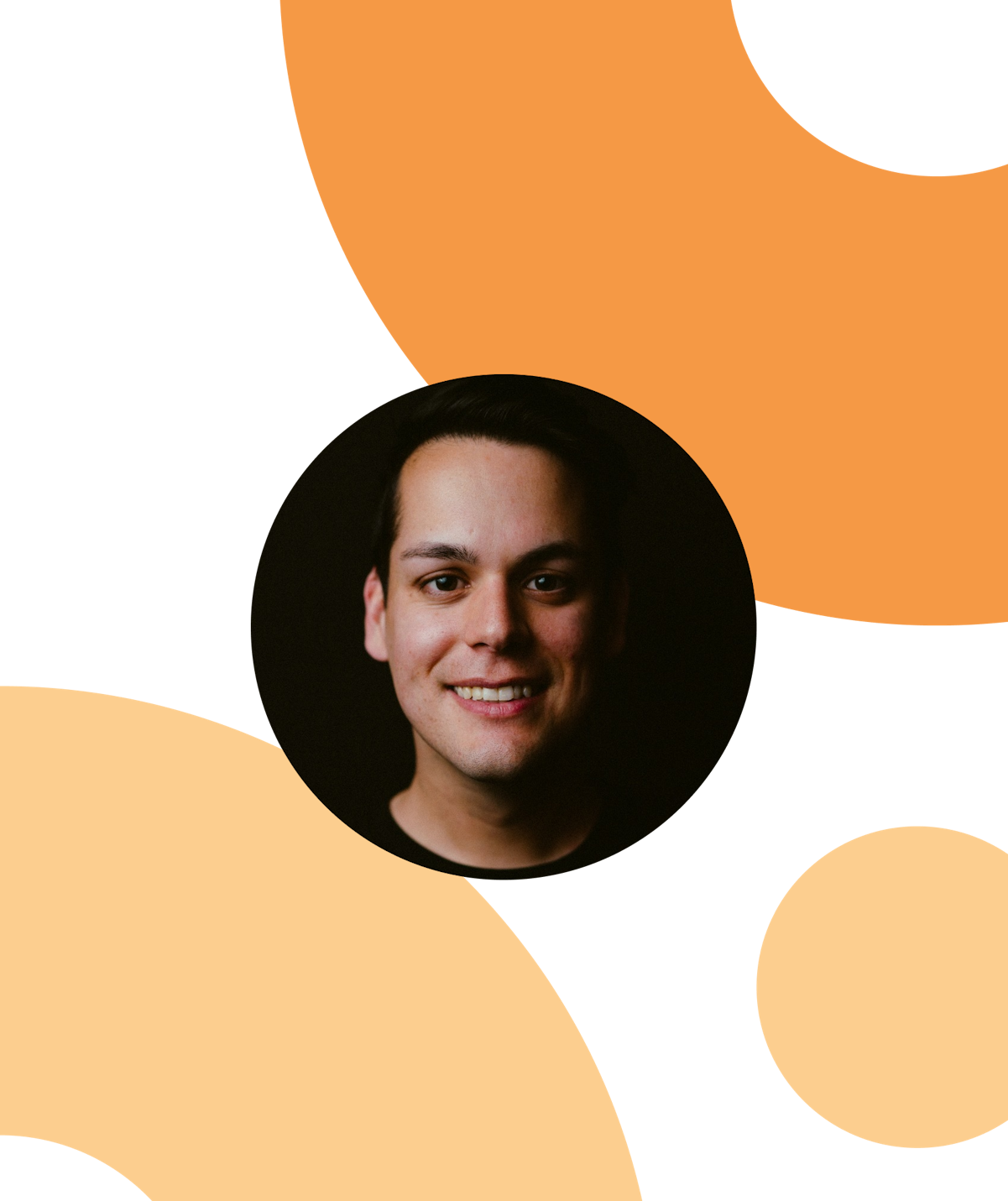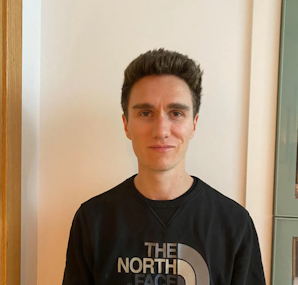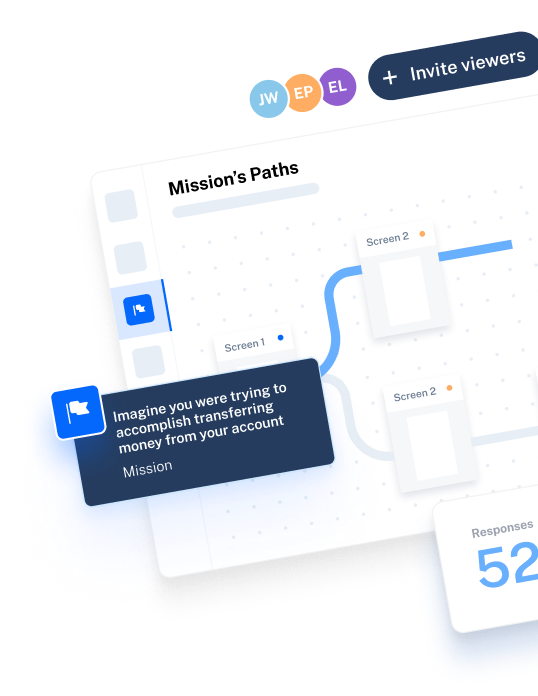Behzod was in eighth grade when his dad bought him his first camera. That might sound like the opening of a story about a photographer—or a designer at a push. But photography sent Behzod down a different path.
“Photography is the practice of trying to see beyond the thing that you’re seeing,” he explains. “So I think that’s when I started looking for stories and trying to understand the world through other people’s eyes.”
As a top UX researcher at Facebook, Slack, and now his own company, Yet Another Studio, Behzod Sirjani has become one of the best at understanding the world through other people’s eyes—the digital world, especially.
But it was growing up with a camera that allowed Behzod to start forming his future research technique—even if he didn’t know it at the time. Taking photos of events for the college newspaper introduced him to places and people he wouldn’t normally have access to, which fed his natural curiosity.
“I'm not Hawaiian, but I got to attend the Hawaiian club events to take photos behind the scenes,” says Behzod. “And while the end photos were nice, everything around them mattered to me more: having interesting conversations and getting to know the subjects.”
If there’s one theme that runs through all of Behzod’s stories from the frontlines of UX research, it’s this curiosity: knowing what to ask, how to ask it, and—crucially for Behzod—how to teach others to do the same. Or, as he puts it, “bringing rigor to people’s curiosity.”
We asked Behzod about some of his key career moments to highlight why democratizing research across your organization is vital, what the benefits look like, and how you can try it in your company.
Takeaway 1) Feed other people’s curiosity as well as your own
Behzod was just out of college when he started at Facebook. “I was in a very junior role as one of the youngest people in the team,” he says. “I felt like everyone around me had a PhD, and I was totally an imposter.” Getting hired by the biggest company in the world can do that to people.
As researchers, we can’t talk to every customer. If I help my teammates have similar conversations, we collectively get closer to that actual lived experience.

Behzod Sirjani
Founder of Yet Another Studio
Share
His team was tasked with understanding why small business owners weren’t using their Facebook Pages much. Many of his research colleagues were doing lab research, but Behzod eventually settled on a different approach—one he felt more comfortable with from his photography days.
“When I brought business owners to an air-conditioned lab with free food, they had no problem using the app. But when I actually watched someone run their business, the problem became clear: if you’re busy running a coffee shop, you don’t have much time for Facebook.”
Behzod realized that getting closer to people and their daily lives was key to understanding the problems they faced as Facebook users. But to make this scalable, it’d take more people than just him conducting the conversations. “As researchers, we can’t talk to every customer,” he says. “I realized if I help my teammates have similar conversations, we collectively get closer to that actual lived experience.”
After teaching some best practices for research conversations and encouraging teammates to talk to customers, Behzod quickly saw an impact on their work: “The rising tide lifts all boats. It made the research better, and it made the outcomes better.” He went on to start a ‘Effective Client Conversations’ workshop within Facebook, which foreshadowed his current work.
Does Behzod ever worry that he’ll democratize himself out of a job? “Highly-qualified researchers are often overly protective about all research,” he says. “I think that attitude is actually really harmful. As a researcher, I want to focus on things I’m uniquely qualified for. Encouraging others to participate meaningfully in other research activities or parts of the process helps me do that.”
For Behzod, it’s simple: helping people do their own research isn’t just better for the team as a whole—it’s also better for UX researchers.
As a researcher, I want to focus on things I’m uniquely qualified for. Encouraging others to participate meaningfully in other research activities or parts of the process helps me do that.

Behzod Sirjani
Founder of Yet Another Studio
Share
Takeaway 2) Prepare for your team to make mistakes
Of course, people won’t get it right all the time. Giving inexperienced people the keys to customer conversations inevitably carries a certain amount of risk, and Behzod has witnessed his fair share of awkward moments:
“I was once shadowing a product manager leading a call after research training. They opened with, ‘Hey, I’m the product manager for this product, and I’m here to understand how to get you to spend more money.’ I was like, ‘Oh God, what have I done?’”
The first thing you need to do when democratizing research is to ask yourself, "What could go wrong?"

Behzod Sirjani
Founder of Yet Another Studio
Share
This was a particularly bad example—Behzod managed to steer the conversation back on track, by the way—but it led to an important realization: “That experience really taught me that the first thing you need to do when democratizing research is to ask yourself: what could go wrong?”
According to Behzod, while total disasters are very rare, it’s quite common for rookie researchers to ask too many questions or to over-complicate their prototypes. So to minimize the risk of these things happening, he has a few recommendations.
Firstly, own the recruiting process for rookie researchers yourself. This way, you can create checks and balances to prevent the wrong people from getting access to the wrong customers.
Next, encourage people to ask themselves a series of questions to narrow down their own question list:
- What is the decision you’re trying to make?
- What evidence do you need to make that decision?
- Of that evidence, what’s actually missing vs. what do you already have?
This helps people avoid wasting time asking customers questions that aren’t relevant because they might realize they already have some of the data—or that this customer might not even be the right person to ask.
Lastly, be transparent with your team about the cost of research: “Research isn’t free, at all,�” explains Behzod. “You have to store the data, make sense of it, analyze it—all of this is expensive. Encouraging people to recognize this helps them think about what’s really worth doing and why, which helps mitigate a lot of bad conversations.”
Takeaway 3) Train people well to get effective data
Day to day, the benefits of democratizing research might seem relatively small. But putting in the groundwork to teach your team can pay off—sometimes unexpectedly.
Behzod has experienced this first-hand. One of his happiest career moments was when he led his team at Slack on a “whirlwind week of research” to Bangalore, India.
Things got off to a bad start. On day one, a miscommunication meant that what was planned as a five- or six-person discussion became an office-wide free-for-all. “We sat down, they sat down, then 30 people walked in. Everyone was deferring to the boss. It wasn’t the kind of conversation we wanted.”
The team returned that evening feeling dejected. Behzod’s original plan was for him and a product manager to facilitate smaller conversations. Now, they needed to figure out how to have insightful conversations with a lot more people in the room. Behzod worried about his team’s morale.
But as the week progressed, his team started rising to the challenge—owning conversations themselves, finding the right person to speak to, and asking the right questions. For Behzod, this was clear proof that democratizing research really pays off.
“By the end of the week, I’d heard everyone at some point say, ‘Oh, that’s really interesting. Can you tell me more about that?’ or ‘How do you do that?’ or ‘What does that mean to you?’ The notes got better, the conversations got better. It was wonderful to see people own that.”
Because we were organized and worked as a unit, we could divide the research into different topics and create this harmonious approach.

Behzod Sirjani
Founder of Yet Another Studio
Share
Not only was his team collecting great insights, but the collective approach made Behzod’s life easier too: “It freed me up to focus on the key decision-maker, the CEO, or whoever I could speak to where my skills would be uniquely valuable.”
So after a rocky start, the team came back from the week in India with a ton of great insights—all thanks to everyone being able to chip in. “I couldn’t have even talked to five people at each company,” Behzod says. “But because we were organized and worked as a unit, we could divide the research into different topics and create this harmonious approach.”
All thanks to the fact that from the product marketing manager to the engineers, Behzod’s team felt confident enough to do the research themselves.
Takeaway 4) Make learning about research accessible
Facebook is literally the size of a town. Ongoing research workshops or year-long training courses like Behzod�’s make sense in a company of this size. But many of us work in much smaller companies, where everyone is already wearing a few different hats. How do you teach people research principles in these environments?
For Behzod, it’s all about meeting people where they are, instead of asking them to come to you. Identify a part of their day-to-day job that already involves some kind of research, and help them do it better. This is what Behzod did when he moved to Slack—still a big company, but not Facebook big:
“The customer success team were already sending out surveys,” says Behzod. “So we just offered to standardize them within the tool that we use. And that was just us saying, ‘You’re already doing this thing, we’d love to use our skills to help you get the data you need.’”
It doesn’t even have to be research-related. You might just want to help people in the organization be better decision-makers by offering a new framework.

Behzod Sirjani
Founder of Yet Another Studio
Share
Another example Behzod mentions is helping the sales team make better calls by asking more structured, open-ended questions: “It doesn’t even have to be research-related. You might just want to help people in the organization be better decision-makers by offering a new framework.”
Behzod’s suggestion for how to democratize research in your company is simple—and it’s the same approach that’s served him well through his career and life: Put yourself in other people’s shoes, and focus on understanding what they really need.





